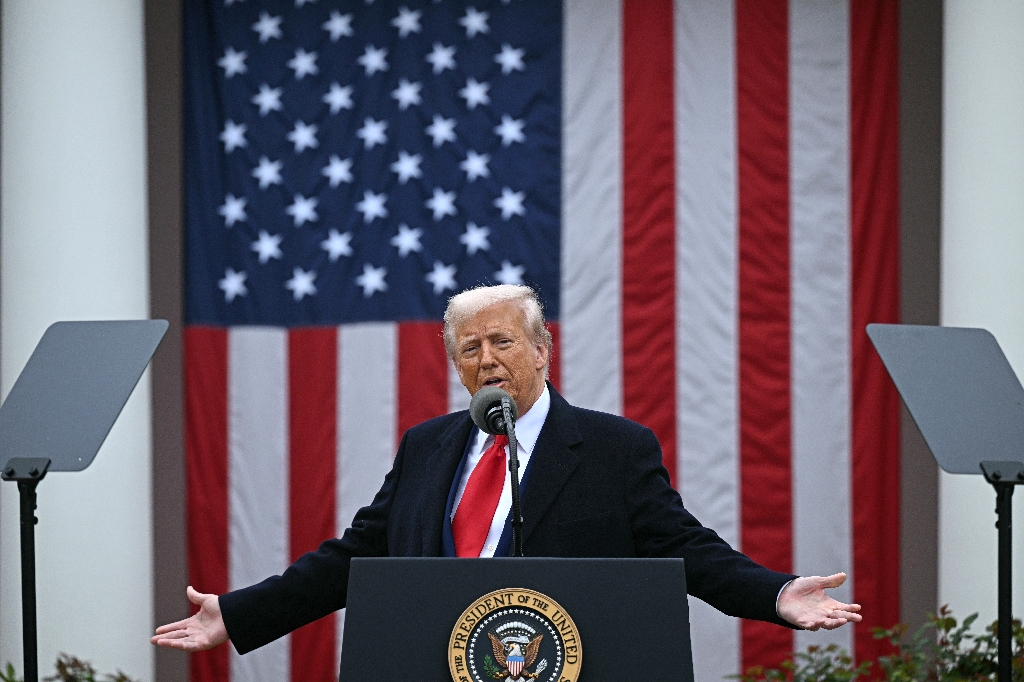Los Angeles (AFP) – Norma Anderson keeps a copy of the US Constitution in her purse.
At 91, she has spent a lifetime studying the document, both during her decades as a Republican Party state legislator and when she’s sitting at home watching TV.
And as lead plaintiff in the case to keep Donald Trump off the ballot in Colorado, she is sure about one thing: the divisive ex-president should never hold office again.
“He violated the constitution and tried to overthrow an election,” she tells AFP.
“And to me, that means our democracy is in trouble if he got elected” once more.
On January 6, 2021, when Trump supporters stormed the US Capitol seeking to prevent the certification of Democrat Joe Biden’s victory, Anderson picked up her well-thumbed copy of the founding charter.
“That very evening, I went back and read that portion,” she says, referring to a clause that bars any elected official who has engaged in insurrection from holding office again.
Anderson felt so strongly that Trump’s actions around January 6 made him ineligible that she joined legal action to keep him off the presidential ballot in her home state of Colorado.
State judges ruled in her favor, saying the former president could not contest the upcoming Republican Party primary on March 5.
Trump’s legal team appealed the verdict to the US Supreme Court, whose nine justices are expected to hand down a ruling any day now.
That verdict could have a monumental impact on the course of this year’s contentious presidential election, with legal moves afoot in several other states where activists and lawyers are seeking to bar the divisive former reality TV star from office.
– ‘Hope’ – At issue is the 14th Amendment to the US Constitution, one of the most consequential and far-reaching additions to America’s governing document.
The amendment, passed in 1868 after the US Civil War, deals — amongst other things — with issues relating to due process and citizenship.
But it also excludes from office anyone previously sworn to support the constitution who “shall have engaged in insurrection or rebellion” against the United States.
The clause has been widely interpreted as an effort to keep former Confederate leaders out of office in the 19th Century, but Anderson and other plaintiffs in the case argue it also applies to Trump.
During Supreme Court oral arguments earlier this month, the majority of justices appeared skeptical of the merits of removing a popular candidate from the ballot.
Both conservative and liberal members of the nation’s highest court expressed concern about having individual states decide which candidates can be on the presidential ballot this November.
“They should not worry about that,” laughs Anderson. “States run elections, federal government doesn’t run our elections. Each state runs the elections and decides who’s on the ballot.”
And just because a state rules that a candidate cannot appear on its ballot does not mean it has bearing on what another state can do, she says.
There are Democrats and Republicans on the ballot in every state, but it’s often a struggle for third party candidates to gain ballot access in some states, she argues.
“And what makes a Republican or Democrat better than a third party candidate? Nothing. We should all be treated equal.”
Despite the apparent headwinds at the Supreme Court, Anderson remains optimistic her legal action will succeed.
“I always have hope until they tell me no,” says the first woman to serve as majority leader in Colorado’s House and Senate.
– ‘Like Putin’ – Anderson, a life-long Republican, finds the thought of Trump returning to the White House appalling.
As far as she is concerned, he is anathema to every principle America was founded on.
“He loves to be just like (Russian President Vladimir) Putin, or a king. I mean, his behavior proves it, everything he says proves it.
“Our founding fathers would not be very kind to him,” she laughs. “They would probably have him imprisoned.”
Since Anderson launched her legal action, Trump’s campaign has portrayed her as a RINO — Republican In Name Only.
But the name-calling washes over her, and she says she has had support from people nationwide.
Whether the Supreme Court agrees with her or not, the legal challenge has been a success in her mind.
“If nothing else, we brought attention to what he is,” she says of Trump. “I know what we’re doing is correct.”




